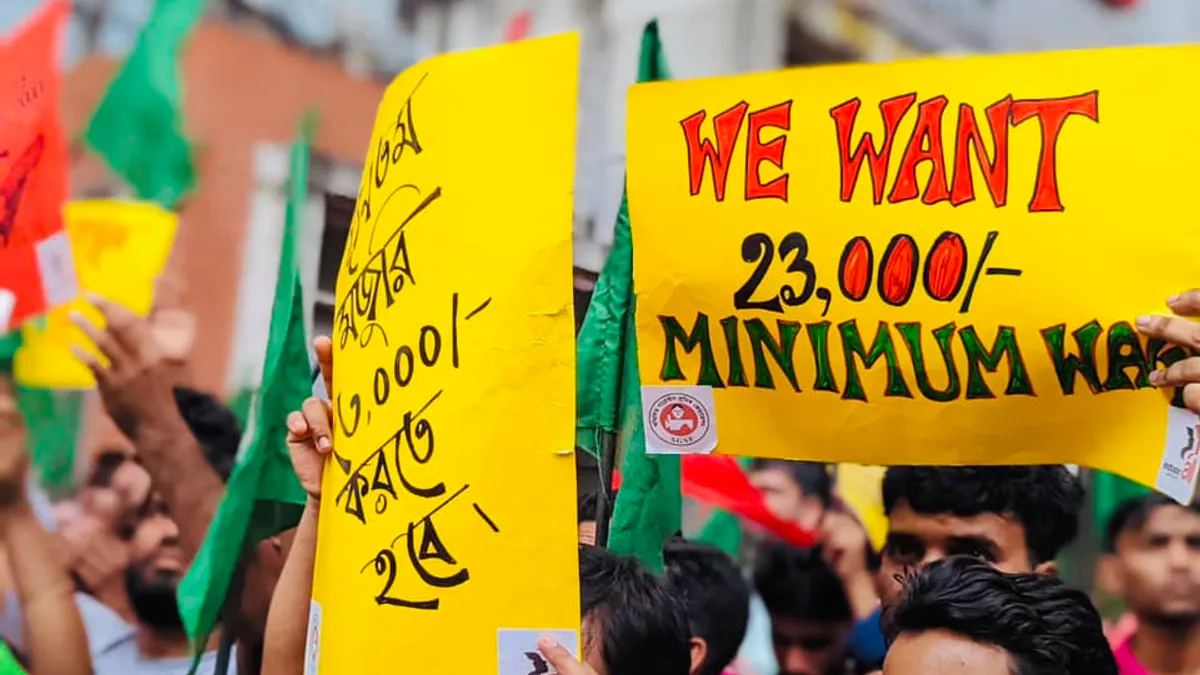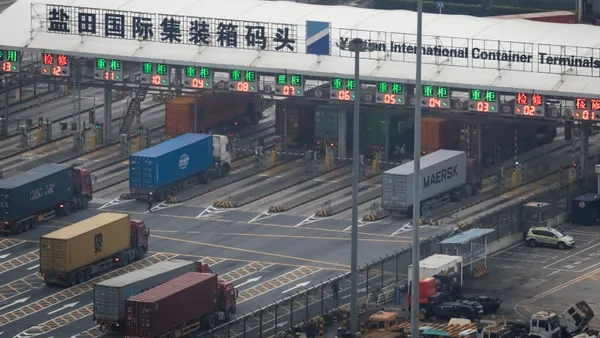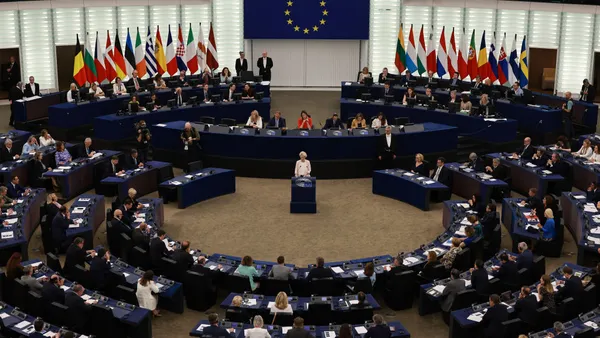The Bangladesh government has agreed to raise the minimum wage for workers in the garment sector by 56.25%, according to a Tuesday report from Reuters.
Garment workers in Bangladesh have been seeking a minimum wage of 23,000 taka per month, or about $208 at current exchange rates. Bangladesh is the second largest exporter of readymade garments, and the industry contributes more than 11% to the country’s overall GDP, according to data from advocacy organization Asia Floor Wage Alliance.
The minimum wage will now be raised from 8,000 taka to 12,500 taka per month beginning Dec. 1, and there will also be a 5% annual increment, per Reuters.
“Our worker partners are disappointed by the 12,500 taka figure, nearly half of what workers and unions across the board have been rallying for," Ayesha Barenblat, CEO and founder of advocacy organization Remake, said in emailed comments to Fashion Dive. "This wage keeps workers in poverty and unable to buy the most basic necessities given inflation. The prices brands pay are directly tied to the growing downward pressure on wages, unrest and growing violence against workers. For all brands who have publicly committed to fair wages: this is the time to be transparent about your prices and whether they allow workers to afford a life of dignity.”
The raised minimum wage announcement comes after a week of protests that led to the deaths of two garment workers.
Some garment factories in the country closed due to the protests, including facilities used by fast fashion giant H&M, a company spokesperson confirmed to Fashion Dive in an email.
The Bangladesh government was originally set to make a decision on the minimum wage on Nov. 1, but it missed the deadline. Instead, the board agreed to reduce the number of pay grades from seven to five, per workers’ demands. Now garment workers can seek promotion every two years, so this smaller number of wage tiers “is a way to promote workers more easily into the higher paying categories,” according to Remake.
The Bangladesh garment sector employs about 4.4 million people, primarily women, according to AFWA’s data.
Conditions in Bangladesh’s garment factories have been closely watched since the 2013 fire and collapse of Rana Plaza, which killed more than 1,100 people. Activism and compliance organizations for factories were formed after the tragedy.
Wage issues for garment workers have been ongoing and in some cases were made worse by the pandemic, per a 2020 report from Workers Rights Consortium. That report found that 88% of surveyed workers said their household reduced food consumption because of their income.
Editor’s note: This story has been updated with Remake’s comments.











